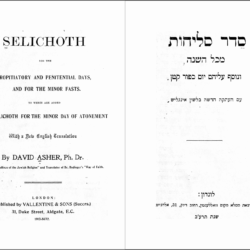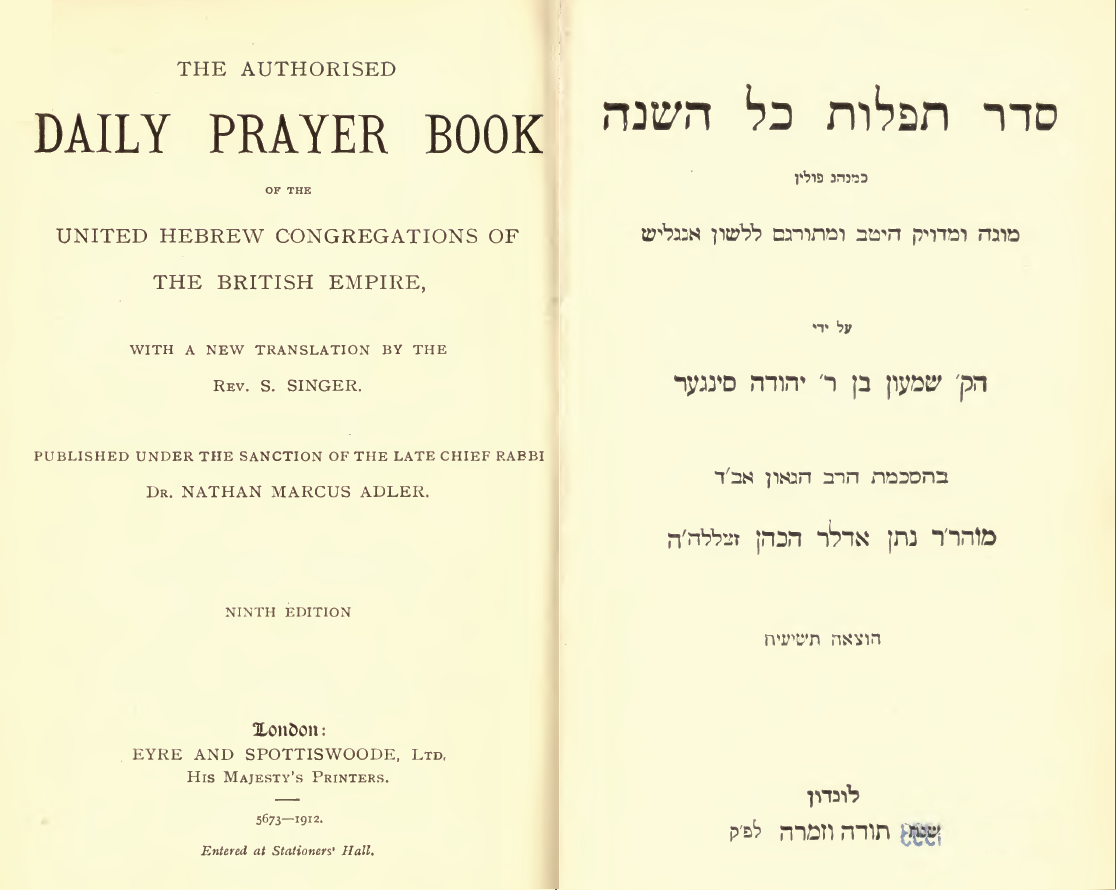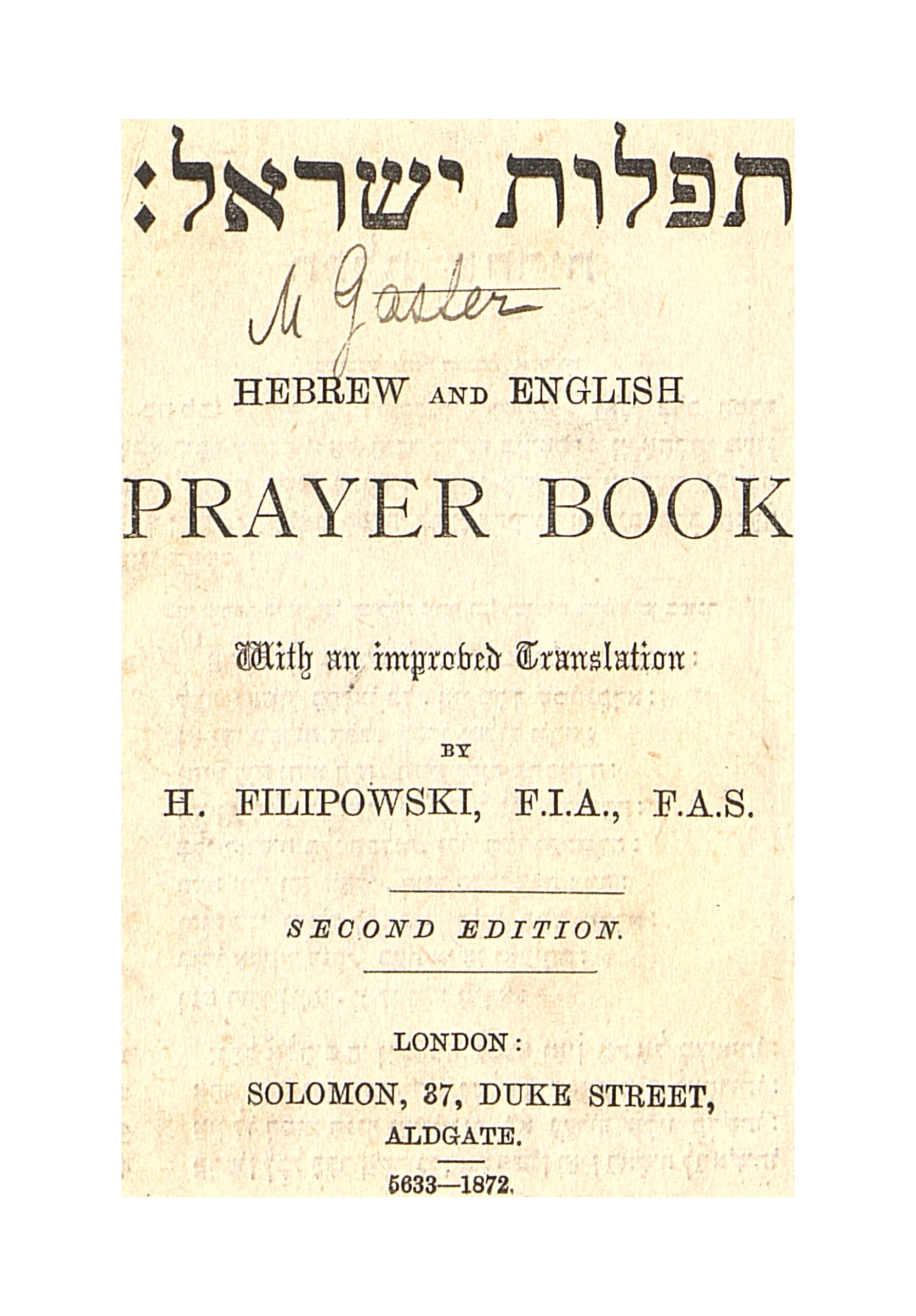
This work is in the Public Domain due to its having been published more than 95 years ago.
This work was scanned by the University of North Carolina at Chapel Hill (Thank you!) and uploaded to the Internet Archive. Scanning this work is the first step in a more comprehensive project of transcribing each prayer and associating it with its translation. You are invited to participate in this project!
PREFACE.
The present translation of the Daily Prayers has been undertaken with a view of completing the Edition of devotional works commenced three years since by the publication of the “Pocket Edition of the Machsor.” On the execution of this volume, the most important of the series, more than ordinary care has been bestowed, and its publication has been long delayed in order to ensure a faithful fulfilment of the pledges by means of which it secured in anticipation the generous support of the community. It is hoped that its patrons will see realised in it all the expectations they have formed, and that the character of the work will sustain the reputation gained by its predecessors in the series. Like the Machsor its chief claim to public favour is based upon an elegance of diction, which has aimed at imparting to our liturgy some portion of the sublime beauty peculiarly characterizing the sacred language in which we daily address our Maker through the ever living words of Holy Writ. To the successful execution of this design there are naturally grave obstacles arising from the diversities in the characters of the two languages; but the task is rendered especially difficult by the necessity which is everywhere recognised of making the Tephillah a manual by means of which the sacred tongue is taught in our schools and families. How impossible it is to combine the almost literal fidelity of rendering requisite for this purpose with the flowing diction and correct phraseology in which prayer should be expressed, none but a Hebraist can realise. It can scarcely be hoped that both ends have been at last attained; but if the reproach so commonly heard “that our prayers do not read like prayers,” is in any degree removed by this translation, a great success will have been achieved and a pious purpose subserved.
But there are other important features characterising this edition which must not be overlooked. The insertion of many of our ceremonies hitherto excluded from a Hebrew-English Tephillah, and the דינים, or laws relating to our sacred rites and seasons, are of themselves sufficient to gain the appreciation of our co-religionists. The English Jew is now found in almost every clime. In the distant plains of Australia, in the backwoods of America, in the yet unreclaimed wilds of Colombia he is met preserving his religious identity in the midst of other creeds, and under the most adverse circumstances rearing his family to the service of his God. Such a one must have frequently longed for some guide book, to aid him in his labour of love, by directing him how to perpetuate in the midst of strangers the knowledge of those ceremonials which envelope the faith of Israel, and which are God’s own means of preserving religion and virtue in the hearts and homes of his people. To such isolated children of the covenant this book will prove a real treasure. It will carry to them the means of comfort in its ancient words of prayer, and with the religion of the spirit it will combine instruction in the religion of the act, and preach Jewish practice in the land of strangers.
May it accomplish its holy purpose, and prove fruitful in blessing to our people, by attaching them more closely to the religion of their fathers, — thus promoting throughout the world the glory of the God of Israel. Amen.
A.P. MENDES.

“📖 התפלות מכל השנה (אשכנז) | HaTefilot miKol haShanah, a bilingual Hebrew-English siddur arranged and translated by Rabbi Abraham Pereira Mendes (1864)” is shared through the Open Siddur Project with a Creative Commons Public Domain Dedication 1.0 Universal license.










Leave a Reply